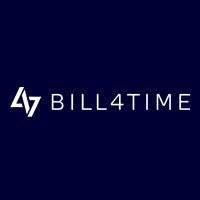Just like any business, establishing clear and ethically compliant billing practices is crucial for law firms. Your billing practices directly affect not only your bottom line but also your firm’s commitment to transparency and the client experience. Clearly communicating your legal billing guidelines goes a long way in building client trust.
But creating your firm’s billing guidelines — and enforcing them — is a challenge of its own. Still, you don’t have to wear all these hats. Legal e-billing software can give you the tools to collect legal fees and manage your firm’s finances so you can skip the guesswork.
The Importance of Clear Legal Billing Guidelines
Whether you’re setting up your guidelines for the first time or revising existing templates and systems, keep in mind why clear billing guidelines matter. They can:
-
Set expectations for your client from the outset
-
Improve — or lower — client satisfaction
-
Determine whether your clients pay the bill
-
Impact your revenue
-
Reduce the risk of malpractice claims
When you have a clear legal billing policy, your law firm will run more efficiently — and you’ll see happier clients, too.
Client Communication
When your client gets their bill, they’re not just looking at a document. They see this as part of your firm’s communication. So, if they get a bill with charges they don’t understand or fees that seem to counter your original attorney-client agreement, they might view your firm as disorganized or untrustworthy. They could even look at those fees and think, I’m not paying for that.
Let your clients know what to expect from the start. They should know all the relevant details about your legal fees, the billing process, and who bears responsibility for each legal expense involved. When you’re transparent about fees, your clients are less likely to get frustrated by their bills — and more likely to appreciate your firm for delivering a smooth, efficient legal process.
Ethics of Legal Billing for Law Firms
Attorneys know that billing practices can have legal implications for their firms. Establishing a clear billing policy also ensures that you’re ethically compliant with American Bar Association (ABA) codes, like reducing the likelihood of double billing. In some states, double billing is illegal.
And you can also reduce your risk of legal malpractice claims when you have billing guidelines in place. When your clients understand what services you’ll render and at what cost, there’s less confusion regarding whether you delivered on your agreement.
What Should Be Included in My Firm’s Legal Billing Guidelines?
Your legal billing guidelines help ensure that the client and everyone in your firm is on the same page about all things related to payment. Include these items in your guidelines:
Explain the Purpose of the Document
Educate the client about what billing guidelines are for, delineating which financial responsibilities fall on the firm and the client. The client should also understand how your billing policy fulfills your attorney-client agreement.
Responsible Parties
Be sure to determine who is responsible for payment. Clarify when and if the law firm will cover certain expenses and when the client bears that responsibility.
Legal Billing and Invoicing Processes
If you charge at an hourly rate, explain what that means (e.g., by what increments, when hourly fees apply). If you work on contingency, tell them about your percentage rate and if other fees apply. The same goes for retainers and any other fees you charge.
Make sure clients understand how they’ll receive their invoices. For instance, explain how to access an e-billing platform if you use one.
Within your practice, be sure that your own firm has a process for billing and invoicing, such as when certain attorneys should review the invoice.
Timeline of Billing
Be sure to detail when your clients will be billed and how often. Ensure that clients have a consistent billing experience.
Signature
Get a signature from your client to confirm their understanding of your fees and billing structure. Again, this can help protect your firm against claims of malpractice or other legal concerns. It will also help you enforce payment collection as detailed in the document.
Legal Billing Guidelines Best Practices
Lawyers may see billing as cumbersome and tedious, but it’s foundational to your business and your relationship with your clients. To make billing simpler, try implementing these few best practices to communicate and enforce your guidelines.
Strategies to Communicate Effectively and Enforce Billing Guidelines
Your communication with your clients impacts the relationship — and their satisfaction with your legal services. When communicating about payments:
-
Set expectations early. It bears repeating: Be clear about your legal billing guidelines as soon as you establish a working relationship with the client.
-
Send invoices on a consistent schedule. Stick to your terms in the billing timeline.
-
Clarify invoice questions — and don’t bill for it. You may need to take a few minutes to help clients understand their bills. Answer their questions without fees attached.
-
Send courteous reminders. Remind clients when they have an invoice and a payment deadline on the horizon.
-
Keep legal and finance aligned. Ensure that your attorneys and your accounting team are on the same page. This way, you can help reduce errors during the billing and invoicing process and ensure you get paid faster.
What Is Legal Billing Software for Law Firms?
With everything that goes into establishing billing practices and enforcing payments, law firms have a lot to manage on the business side. One of the best ways to streamline your billing process is to automate it electronically with software tools.
Overview of Legal Billing Software
Legal billing software simplifies how you invoice, bill, and organize documents for your payments. It can even help you increase your revenue by more efficiently tracking your time, making sure clients receive invoices promptly, and eliminating billing bottlenecks that prevent your firm from turning invoices into revenue.
This can be executed through cloud-based programs or software on your firm’s computers. You can even integrate outside accounting tools, such as Quickbooks so that you adopt the solution that fits best with your firm’s current systems.
Best Legal Billing Software
When you start to think about introducing legal e-billing software to your practice, think about what your firm needs from the tool. Identify your billing bottlenecks, and look for software that helps you address them. Then, make sure that the software offers the features and benefits you need.
Features and Functionality Firms Should Look For
Every legal billing platform is different, but make sure that you search for solutions that offer a few essential features, like:
-
Document management and invoicing. You can create all the documents you need with good legal billing software. Depending on the product’s features, you can make branded invoice templates and check the bill’s status. You can also track your receipts and expenses to better manage your firm’s spend.
-
Online payment processing (and custom links). When clients have an easier way to pay and the option to use a credit card, they may be more likely to pay promptly. The best legal billing software includes features like client portals, which give your clients a digital place to review invoices and ePay.
-
Reporting. With all your invoices and expenses organized in one platform, you can get readily-accessible insights into your firm’s financials. You can review your payment history, productivity, and expenses, among other reports.
-
Legal CRM. Some legal billing software also offers a customer management system to help you keep track of your client profiles, communications, and more.
Benefits
With legal billing software, rest assured that your time gets tracked, your clients get their bills, and your firm is getting paid promptly. But the benefits go beyond pure financials. Consider other ways legal billing tools can help your firm:
-
Improved productivity
-
Better in-house collaboration
-
Optimized onboarding for new staff
-
More satisfied clients
After all, the more streamlined your systems, the better for everyone who touches billing and invoicing in your firm. New staff will be better positioned to hit the ground running, and your customers will be happier to have the clarity and ease of digital payments.
Does My Law Firm Need Legal Billing Software?
Bringing in new software tools for your practice is a big investment. Think about a couple of key factors to decide if your firm should invest.
-
Internally: How much of your staff’s time and resources are dedicated to billing? And do you have an ongoing issue with unpaid invoices? Run reports if you’re not sure. If you’re seeing rates of 15 or 20% unpaid invoices, you might want help with optimizing your process.
-
Externally: Do your clients express confusion about their bills? Do they often ask for credit card payment or digital payment capability?
If the answer to most of these questions is yes, you may want to consider bringing in the billing software. Whether you’re a small or large law firm, you may not even realize just how much revenue you stand to capture by automating your payment systems.
How Software Can Support Your Firm’s Legal Billing Guidelines
Ultimately, using legal e-billing tools can help you pair your billing guidelines with the enforcement side. With an easy-to-use system to send and track invoices, you can ensure that your clients uphold their end of your fee agreement.
Because you can automate your billing and easily set payment deadlines, you can also help eliminate human error from the process.
Implement Legal Billing Guidelines at Your Law Firm
Legal billing guidelines exist to help protect law firms and clients. They’re an essential tool that allows you to fulfill both sides of the attorney-client agreement. Plus, with billing policies in place, you can help your firm capture a significant number of payments that may have come too late or slipped through the cracks. And these guidelines also help your clients know what to expect—both from your firm and on their own end financially. More transparency for your clients means happier clients.



 />i
/>i

